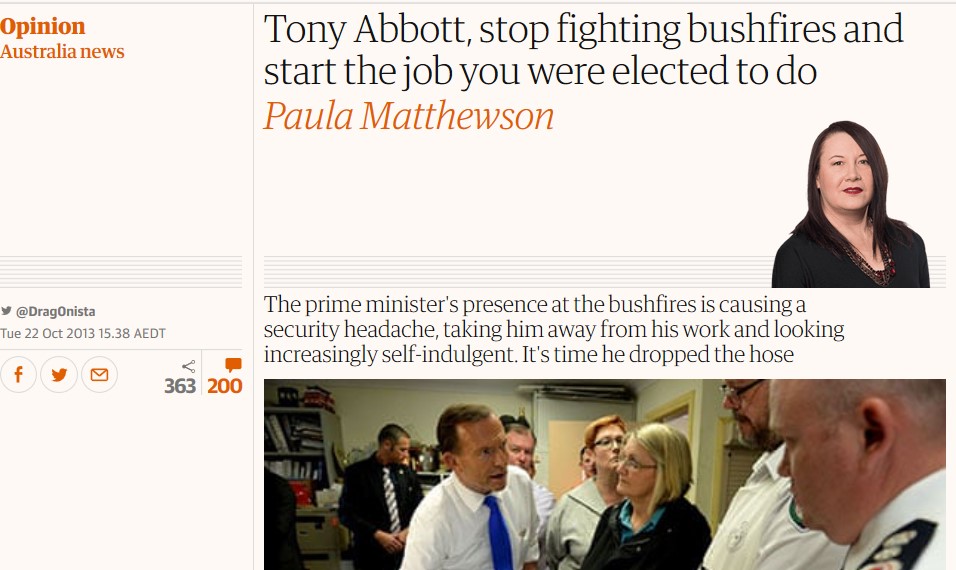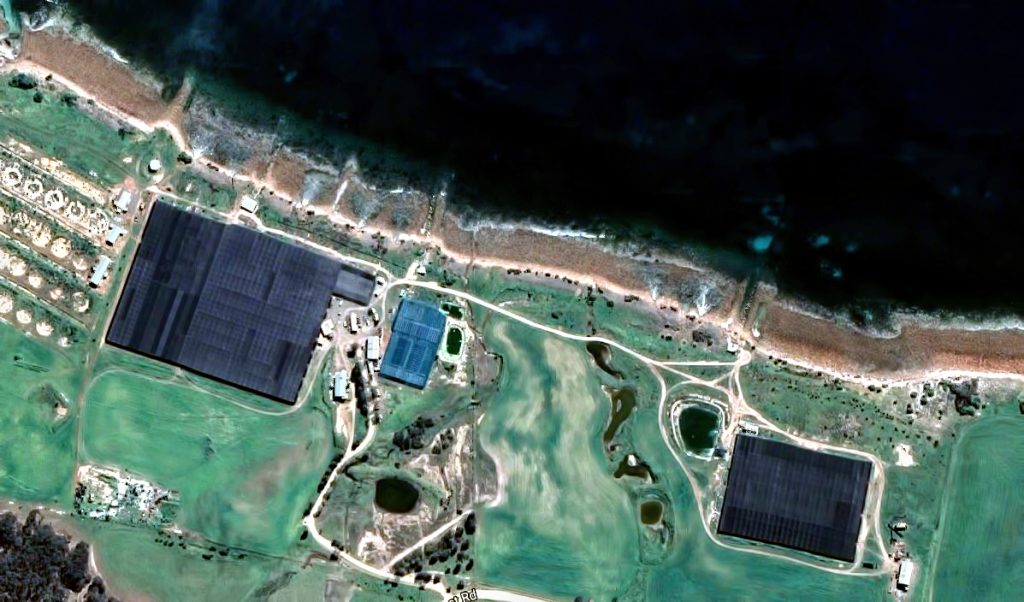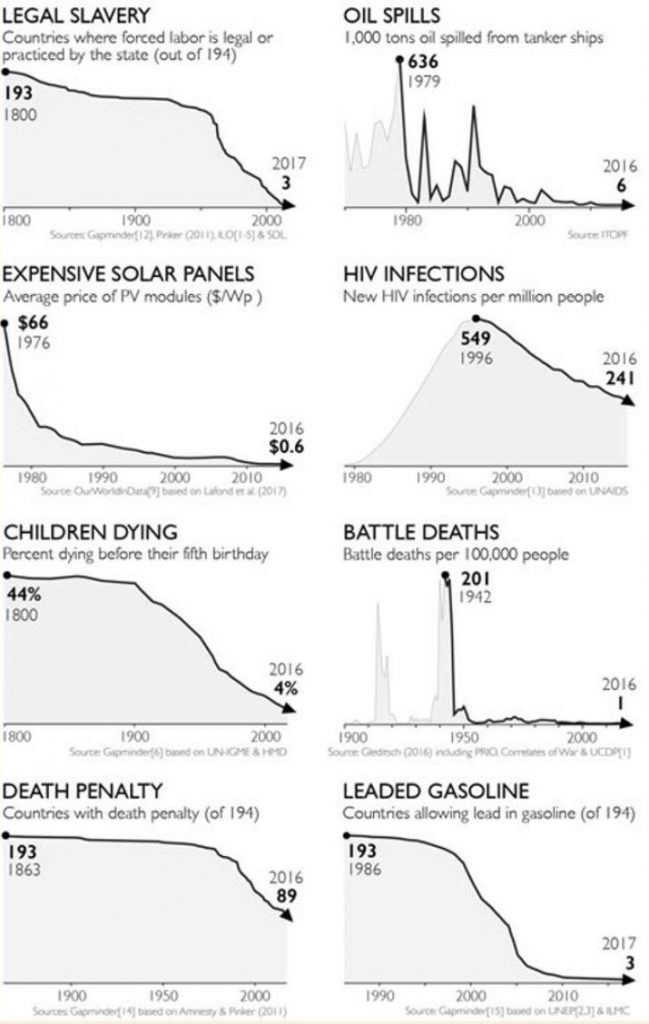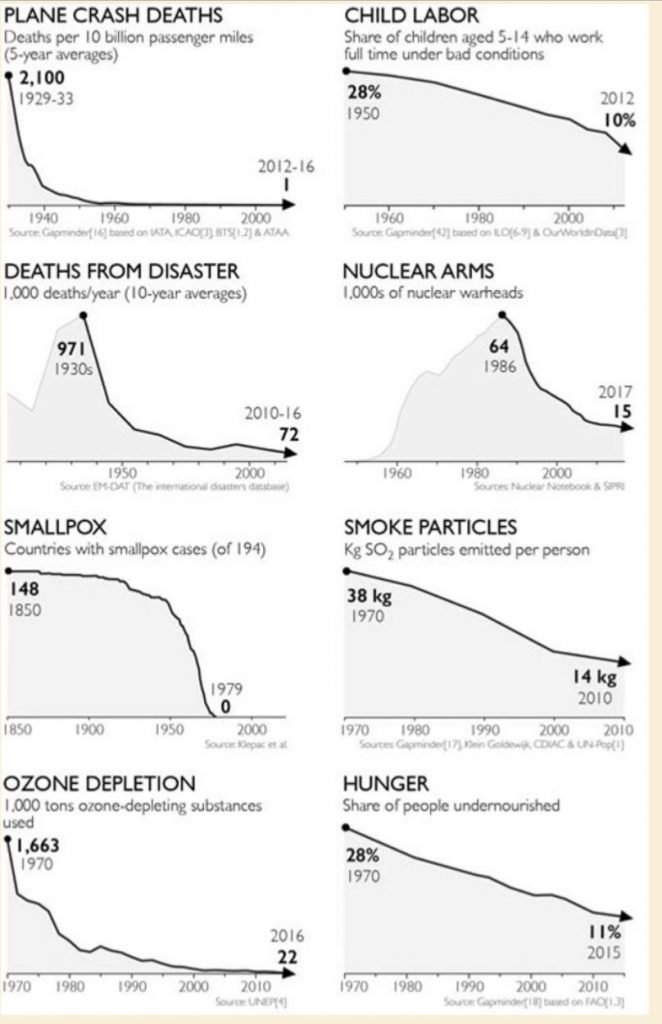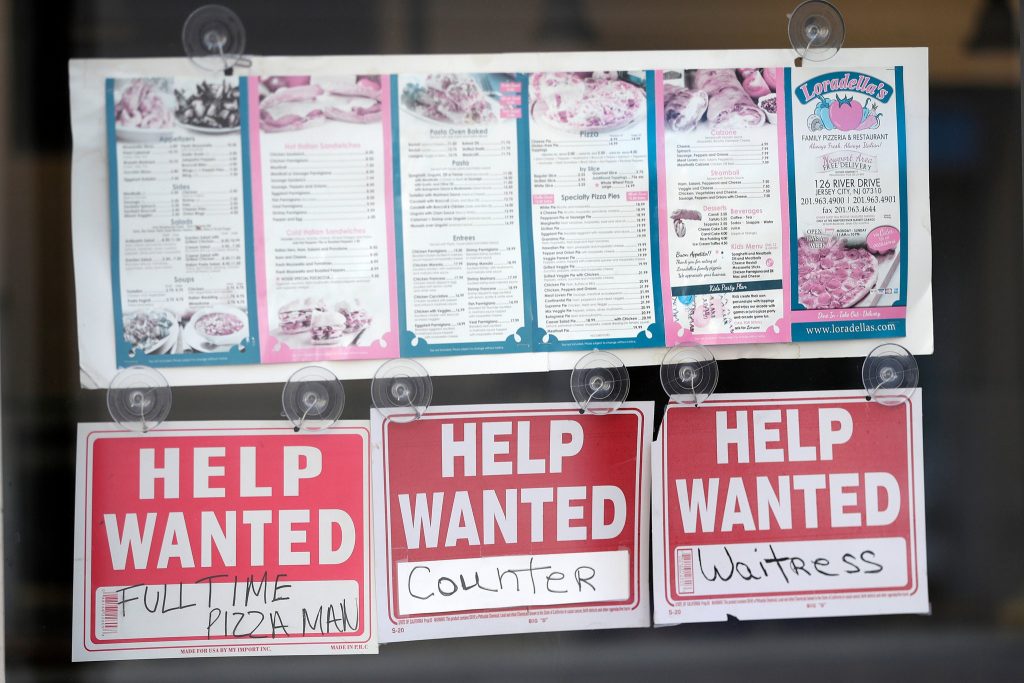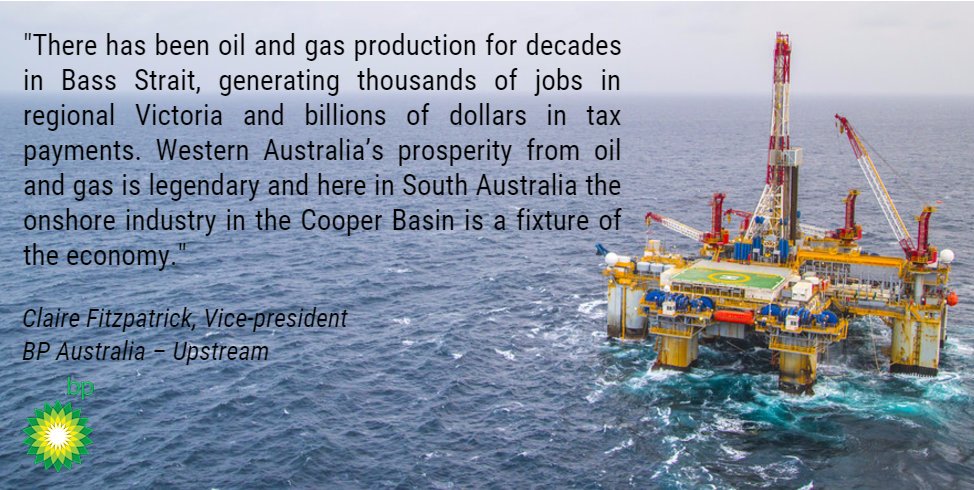Bill Gates has been the Emmanuel Goldstein of the anti-vaccination movement for years. But why are so many other people suddenly jumping in?
Boy that Bill Gates is an evil dude. Or so you might think if all you read is Facebook and Twitter. US commentator Candace Owens (whom I otherwise like and admire) has called him a “vaccine criminal,” while conspiracy theorist Alex Jones says he is “Satan’s benchwarmer,” the “placeholder for the anti-Christ.” Gates is hell-bent on depopulating the world so the elite can take over and live in unimaginable luxury while the common folk live as slaves. His chosen method for this depopulation is vaccines, and COVID-19 was created to trick or force everyone into getting the vaccine that will either kill them or track them using microchip implants.
What makes it even worse is that he has publicly announced his intentions, and has been carrying out this plan in plain view, if people would only look. He even owns patent WO (for World Order) 666 for implantable tracking technology, but people are sheeple, and refuse to believe what is right in front of them.
It’s a great plot for a movie. Tom Hanks has to uncover the secret and save the world in the nick of time.
You can’t get much more evil than all that. If all of this is true.
So let’s look at some of the claims being made about Bill Gates, and see how much truth is in them. But first, let’s consider another, related post that has recently done the rounds of Facebook and Twitter. This tells the story of Robert F Kennedy Jnr bravely facing down the CDC and showing that “The CDC is a subsidiary of the pharmaceutical industry. The agency owns more than 20 vaccine patents and purchases and sells $4.1 billion in vaccines annually.”
Hmm.. sounds worrying. Let’s check. First of all though, let’s understand what patents are.
Patents protect a creator’s design, product or process, so that the creator can invest in research and development, and be confident that some ratbag is not going to come along and steal their work and profit from it by using the process or manufacturing the product without having done the creative work and research. For example, there are over a thousand patents which protect the latest iPhone.
Vaccines are hugely expensive to create, and just as hugely expensive to test, then to package and bring to market. In the same way many patents may protect a product like an iPhone, many patents may be needed to protect a single vaccine. These may cover the antigen itself, adjuvants, packaging, manufacturing processes, method of delivery, etc. Patents can be licensed to other companies or individuals. iPhones include technology licensed from other companies, as well as technology developed by Apple itself.
The CDC owns a large number of patents related to medical technology. This is because the CDC does a huge amount of medical research. Some of these relate to vaccines. This is because from time to time a researcher will discover, for example, an antigen that provokes an immune response to a particular pathogen, or a method of inactivating a virus for use in a vaccine, or a new adjuvant.
The CDC lists all of its patented technology which is available to be licensed. https://www.cdc.gov/os/technology/techtransfer/industry/licensing/technologies.htm Given it is a publicly funded organisation, why would the CDC patent these things? Why not just let people use them? There are three reasons. Firstly, it stops anyone else from patenting the CDC’s research, profiting from it, and stopping others using it. Secondly, licensing this technology protects the integrity of the manufacturing process, assuring end users of the quality of the product. And thirdly, licensing royalties provide a small return to tax-payers for their investment in the CDC’s research.
The CDC owns patents, not on vaccines, but on vaccine technology (amongst many other things), which it licenses to manufacturers and to other research bodies. There are fifty-seven such patents currently listed. So far, Robert Kennedy Jnr is roughly, sort of right. The CDC does own more than 20 vaccine-related patents. Everything else he said in the interview in which he made that claim, and everything else in the Facebook post in which these claims appear, is false. As we go on to consider the Bill Gates conspiracy theories, we will see that this is a very common anti-vax tactic: Make one true, or near true, claim, then by exaggerating, missing context, or simply making data up, proceed to make claims which are completely false, and because false, dangerous. Dangerous because they are an attempt to dissuade people from receiving life-saving treatments and preventatives.
The CDC does not sell vaccines. In fact it spends nearly half its annual budget (in 2017 $4.1 billion out of a total $11.9 billion budget) on buying vaccines. Which it then sells at a profit, right? No. Which it then gives away:
“CDC buys vaccines at a discount and distributes them to grantees—i.e., state health departments and certain local and territorial public health agencies—which in turn distribute them at no charge to those private physicians’ offices and public health clinics registered as VFC providers.” https://www.cdc.gov/vaccines/programs/vfc/about/index.html#glance
But it still makes money from its vaccine technology patents? Yes, although it does not manage the licensing of those patents directly. This is handled by National Institutes of Health Office of Technology Transfer (OTT), which is responsible for licensing all of the patents generated from the Department of Health and Human Services, which includes the CDC. If we want to be picky, we should note it is the Department, specifically the Secretary of the Department, which owns the patents, not the CDC itself.
Last year the OTT reported income of $78.2 million for all patent licensing from the NIH, CDC and FDA. Let’s say that half of this was licensing of CDC patents, and half of that was generated by vaccine technology patents. The CDC has another six research areas in which patents are available to license, so this is a very generous estimate. That means the CDC’s income from vaccine-related patent licensing was no more than $19.55 million, and probably less.
There are three things to note about this. Firstly, the CDC does not make $4.1 billion selling vaccines. It doesn’t sell vaccines. It SPENT $4.1 billion on vaccines, which it gave away. Second, the maximum of $19.55 million which the CDC made from royalties on vaccine-related payments is less than one fifth of one percent of its budget. Thirdly, all of those royalties went back into further medical services and research. If you think less than one fifth of one percent of the CDC’s budget is enough to corrupt an entire organisation whose purpose is improving health, whose personnel are there and are recruited because they want to make world a better and healthier place, many of whom put themselves at considerable risk in order to do so, then allow me to suggest politely that you have rocks in your head.
This does not mean the CDC is above criticism. It is sometimes slow to react, and sometimes gives contradictory advice. Like all very large government organisations it has become top heavy and bureaucratic. It has lost focus on its original mandate to research and assist with infectious diseases, and broadened into other medical fields. But there is no evidence to suggest it is corrupt or in cahoots with pharmaceutical companies.
Considering these claims by Kennedy has given us some useful background to the conspiracy theories about Bill Gates, and the venomous rage those stories generate.
Let’s start with patent WO666. Microsoft Technology does own patent WO2020060606A1. That is the little bit of truth in this story. It isn’t owned by Bill Gates. Bill Gates hasn’t worked day-to-day at Microsoft since 2008, and retired from his position as Chairman of the Board in 2014. The WO doesn’t stand for World Order, it is an abbreviation for World Intellectual Property Organization, the largest international patent issuing organisation, and is the preface to all patents issued by that body. The A1 at the end indicates that the patent has not yet been granted; it has been applied for and published so other patent holders can review it before the patent is granted. The 2020 indicates the year in which it was published. The patent number is 060606. These are issued sequentially and have no meaning other than being an index/reference. The number does include three sixes, but you have to ignore the other eight letters and numbers to get “patent 666.”
What is the patent application for? Microchipping humans, right, so they can be tracked? No. There is nothing in the application which suggests any kind of implant or any sort of geo-location or tracking. It is an application for digital technology which could be included in a watch or fit-bit type device, which would reward users with crytpto-currency for physical activity.
Most crypto-currency, bitcoin is an example, is “mined” using computer GPUs. This process uses considerable electricity, estimated at over 60 terawatt hours per year; more than the entire country of Switzerland. https://www.forbes.com/sites/niallmccarthy/2019/07/08/bitcoin-devours-more-electricity-than-switzerland-infographic/
The Microsoft proposal would reward people with crypto-currency for keeping fit. It is that simple. It is also worth noting that the patent hasn’t been granted yet, and that while Microsoft had a fitness band, released in 2014, it stopped producing them in 2016, and has announced no plans to produce another. If granted, the technology patented in WO2020060606A1 would likely be licensed to other companies like Fitbit, rather than in a new product made by Microsoft itself. A company which in any case, as noted above, Bill Gates is no longer involved in running.
“But Bill Gates and Dr Anthony Fauci sent $7.5 million to the Wuhan lab to research altering bat viruses so they would infect people, and Bill Gates owns the patent for Coronavirus!”
The little bit of truth in this is that since 2014 the National Institutes of Health has granted $3.7 million to a well-respected research organisation called Ecohealth Alliance to fund research into coronaviruses. Since 1984 Dr Anthony Fauci has been director of the National Institute of Allergy and Infectious Diseases, one of twenty-seven bodies which make up the NIH. Dr Fauci has never been in Wuhan, and it is not clear whether he had any role in the grant to Ecohealth Alliance. He certainly had no role in The Ecohealth Alliance’s decisions about where that grant money was directed. Bill Gates, incidentally, has nothing to do with the NIH. The Gates Foundation has made one grant of $1.5 million to Ecohealth Alliance, but that was in 2020 and was for agricultural development.
Funds from the NIH grant were divided between the Wuhan lab, and institutes in Shanghai, Beijing, and Singapore. This is a list of published papers based on research partially funded by that grant.
https://projectreporter.nih.gov/project_info_results.cfm?aid=9819304&icde=49588715
Most of the recent virus scares have come from zoonotic infections, that is, infections which have jumped from animal hosts to humans. Examples include Zika, Ebola, Plague, and West Nile Fever. Research into coronaviruses is important because of their ability to jump from animal to human hosts, often with deadly results. Many ordinary colds result from one of the four common coronaviruses: 229E, NL63, OC43, HKU1. Most people will suffer from one these at least once, with nothing more than a mild fever, a cough and sniffly nose.
However, coronaviruses can also be killers. SARS (Severe Acute Respiratory Syndrome), and MERS (Middle East Respiratory Syndrome) are both examples. Because these diseases are highly infectious and have high mortality rates, many health authorities were concerned that the next major pandemic could be a coronavirus, and offered grants for study into their genome and infection pathways. If a new, deadly coronavirus appeared (and it has – that is what COVID-19 is), this research would help us be better prepared.
China’s behaviour in deleting records of the genome, denying the outbreak, and then denying the risk of infection, were reprehensible. China should be held to account. It is possible that the virus escaped from the Wuhan lab. This needs to be carefully and independently investigated. But the research itself was worthwhile and deserved to be funded. There was nothing nefarious about the funding at all. Also, Bill Gates had nothing whatever to do with it.
But then how does he happen to have a patent for coronavirus that dates from 2014? Surely that proves this pandemic was all planned in advance?
The normal anti-vax conspiracy practice, as we have seen above, is to take a little truth, and then add several large lies. In this case, there is no truth at all, just several wild assumptions.
There are many coronaviruses. The Bill and Melinda Gates Foundation funds many medical services and research organisations. One of these is the Pirbright Institute in England. The Pirbright Institute has received two grants from the Gates Foundation, one in 2013 for research into diseases affecting livestock, and one in 2016 for research into a more effective flu vaccine.
In 2018 Pirbright was granted a patent which covers the development of an attenuated (weakened) form of a coronavirus that causes respiratory diseases in poultry, which they hope might be used be used as a vaccine to prevent respiratory diseases in birds, including avian infectious bronchitis. The vaccine is not owned by Bill Gates, the funding his foundation provided was for completely different purposes, and the weakened avian coronavirus for which Pirbright holds a patent is a completely different pathogen from SARS-CoV-2, the novel coronavirus which causes COVID-19.
In the last couple of months the Pirbright Institute, which has considerable experience with zoonotic and respiratory infections, has collaborated with researchers at the University of Oxford and Public Health England, to try to develop a vaccine for COVID-19. Bill Gates has nothing to with that either.
“But still, everyone knows Bill Gates experimented on African children with untested vaccines.”
The trouble with claims like these is that they are easily made, and easily passed on. Just create a meme with a happy looking picture of Bill Gates juxtaposed with a dying black child, and another child being poked with what looks like a horse needle, and you are guaranteed a viral response. People are less inclined to read referenced articles, or to look carefully for facts in government or local medical reports. It is easier and more fun to repost that story about the horrible Bill Gates, because, like, it’s probably true, and even it isn’t he deserves it because everyone knows he has done so many other horrible things. Then you can feel indignantly self-righteous for a few minutes, be pleased with the number of likes you get, and go back to cat videos and complaining about the government.
Except that Bill Gates Bill Gates doesn’t own any vaccine patents, he doesn’t sell vaccines, and he doesn’t conduct any research into vaccines. The Bill and Melinda Gates Foundation funds health services and research including sanitation, vaccines, clean water, anti-biotics, birth services, and diagnostic and treatment centres. Mr Gates has no role in the day-today determination of which bodies receive grant funding, and no role at all in determining how grant recipients spend that money.
This experiments on black children story seems to have started with a 2017 non-peer reviewed article on international law and the accountability of NGOs, (non-government organisations).
https://digitalcommons.law.ggu.edu/cgi/viewcontent.cgi?article=1205&context=annlsurvey
In that article, the author, Sharmeen Ahmed, claims that several programmes funded by the Gates Foundation resulted in “numerous deaths and injuries, with accounts of forced vaccinations and uninformed consent.” She offered no references to support these claims.
If true, this would show that some organisations which have been part-funded by the Gates Foundation need to operate more carefully and openly, and perhaps that the Foundation needs to vet grant-receiving organisations more carefully. But Ahmed’s claims are not true. They were known not to be true six years before they were published. Sadly, like most anti-vaxxers, Ahmed has no interest in what is true.
Her story related a mishmash of distortions about a trial of HPV vaccination that was funded by the Bill and Melinda Gates Foundation which ran in India, Peru, Uganda and Vietnam. Let’s note first off that it was not a trial of an untested or experimental vaccine, as is often claimed in various Farcebook references. Gardasil had been approved for use in the USA in 2006, following many years of research and clinical trials, and Cervarix in 2009. They have been hugely success in reducing the incidence of cervical cancer. By 2010, when large numbers of girls began to be vaccinated through the trial programme, both vaccines had solid research support, had been approved for use in most Western countries, and had been proven in the field to be both safe and effective. The purpose of the trial funded by the Gates Foundation was not to assess the vaccine itself, but the practicalities and costs of widespread vaccination in very poor rural and densely populated urban areas.
All went well, until a small number of girls in India, seven out of 23,428, died within four months of receiving the vaccine. This story was picked up by local, then national media. A furore was created, and the trial halted. A government review was undertaken. Sharper readers may already be wondering whether seven girls out of 23,428 in impoverished areas of India dying in any four month period was anything out of the ordinary. Sadly, they would be right to do so.
To quote from the official government report:
“There were a total of 7 deaths, 5 from the AP and 2 from Gujarat. A detailed review of death cases were undertaken from the available records in the form of FIR, Clinic/hospital prescriptions/records and the autopsy. Out of the five deaths reported from Andhra Pradesh, two died due to consumption of organo-phosphorus poisoning (autopsy proven) and one died due to drowning in a well.
These three girls died after 45, 97 and 49 days after the last HPV vaccine dose respectively. The fourth case developed symptoms 96 days after receiving the third dose of the vaccine and had died of unrelated disease which cannot be linked possibly to HPV. The fifth case had started symptoms 23 days after the last dose and possibly died of severe malaria after eight days of treatment in health facilities. Similarly at Gujarat, one case died of snake bite and the other case died of severe malaria.
… The background death rates among girls 10-14 years of age in both Vadodora and Khammam districts did not show any increase rate. In fact in Vadodora district the death rate has significantly decreased in 2009 compared to the past years.”
None of the deaths of any of the seven girls was related in any way to the Gardasil or Cervarix vaccines they received as part of the trial. We have seen the same kind of irrational panic over the last month in relation to the AstraZeneca COVID-19 vaccine. “It causes blood clots!” No it doesn’t. The rate of dangerous thromboembolism is no greater in vaccine recipients than unvaccinated populations. See the WHO review here:
And my own earlier comments about relative risk and COVID-19 vaccination here:
https://qohel.com/2021/02/01/covid-19-health-matters-life-matters/
Just as an aside, another of the programmes funded by the Gates Foundation was MenAfriVac. This programme, which cost $70 million, was one of the most successful African health initiatives ever. Between 2010 and 2019, 315 million people in Africa’s meningitis belt, an area extending across the width of sub-Saharan Africa, received the vaccine. Cases of meningitis A have dropped almost to zero. According to the WHO, the vaccine is “expected to eliminate meningococcal A epidemics from this region of Africa,” Meningitis regularly killed thousands of people during outbreaks. Not any more. Without MenAfriVac, hundreds of millions of Africans would be vulnerable to a disease that can kill within hours and leave survivors paralysed, blind, and intellectually disabled.
If anti-vaxxers cared about the truth, they would be gasping for breath right now. Sadly for their victims, they don’t. They only care about ammunition. Here is the last gasp.
“But Bill Gates has publicly said he intends to use vaccines for population control! He is lulling people into a false sense of security before forcing everyone to be vaccinated with a vaccine that isn’t a vaccine, will permanently alter their DNA, and will kill half of those who receive it.”
To paraphrase Theoden of Rohan, “What can people do against such reckless stupidity?” Is it even worth trying to answer such manifest irrationality? Well, perhaps briefly.
Firstly, just because a vaccine operates in a different way from previous vaccines does not mean it is not a vaccine. The mRNA (messenger RNA) vaccines developed against COVID-19, are designed to provoke an immune response just like other vaccines. They just shortcut a couple of steps in doing so, and this has the potential to make them faster and more reliable. Neither mRNA vaccines, or any other proposed COVID-19 treatment or preventative does or even can alter human DNA.
“Yeah, well, Bill Gates still said he was going to use vaccines to eliminate half the population.”
No, he didn’t. So where the heck did that come from? In 2010 Bill Gates said “The world today has 6.8 billion people. That’s heading up to about nine billion. Now if we do a really great job on new vaccines, health care, reproductive health services, we could lower that by perhaps 10 or 15 percent.”
Does this mean he intends to poison vaccines, or implant tracking devices in them, or slow release killers to be activated by the 5G signal? I am not going to link to any of the fantastically dishonest or relentlessly stupid and baseless videos which make this claim. You can find them, or friends will send them to you.
Instead, here is a link to Bill Gates explaining exactly what he meant, which is pretty much exactly what it was obvious to me and every rational person on the planet he meant. As infant and youth mortality improves, families have fewer children, so over time the rate of population growth declines, and even becomes negative. This is true of every developed country in the world. There is nothing remotely controversial about this. What this means is that doing everything possible to improve infant mortality and health does not mean unsustainable population growth. The evidence shows exactly the opposite. The healthier we are, the more stable the population becomes.
https://www.youtube.com/watch?v=obRG-2jurz0
None of this means that Bill Gates is perfect. He is human. He gets things wrong. His Foundation will get things wrong. They fund some programmes I believe are inappropriate. But this does not make him a monster. Despite the occasional misallocation (in my view) of funds by the Gates Foundation, it is still a huge influence for good. See the MenAfriVac programme briefly described above for one example. What we should be concerned about, and doing everything we can to combat, is the repeated, lazy and vicious misrepresentations of anti-vax lobby groups. Anti-vaxxers kill children. If anyone deserves contempt, it is they.
